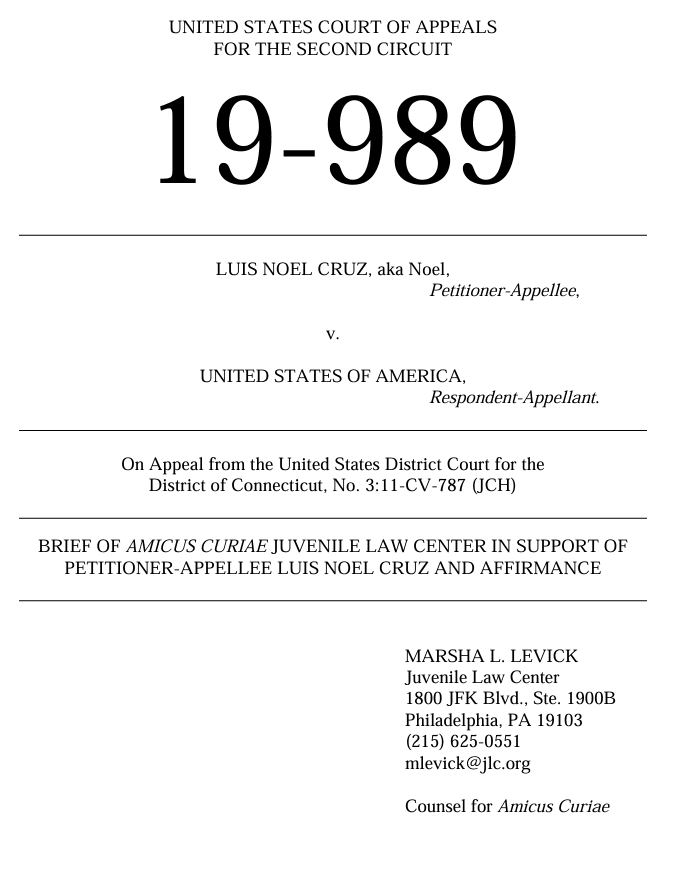
Summary of Argument
In Miller v. Alabama, the United States Supreme Court ruled mandatory life without parole sentences unconstitutional for individuals who were juveniles at the time of their offenses. 567 U.S. 460, 465 (2012). The Court, relying on the same underlying scientific research used to bar the death penalty for juveniles, held that children were less culpable than their adult counterparts because of their immaturity, impetuosity, susceptibility to peer influence, and greater capacity for rehabilitation. Id. Further research now indicates that individuals retain these characteristics beyond age 18. Because young adults possess the same adolescent characteristics that the Supreme Court has determined reduce culpability, mandatory life without parole sentences for this population are also disproportionate under the Eighth Amendment. Further, in recognition of the current developmental research, jurisdictions around the country are increasingly raising the age of adulthood above age 18 in situations that implicate the developmental characteristics relied upon in Miller, reinforcing that one’s 18th birthday is an arbitrary and outdated basis upon which to define the constitutional parameters of our sentencing practices. Indeed, as courts around the country have considered age and its attendant characteristics in sentencing older adolescents and young adults, they have consistently found them less deserving of the harshest available penalties—as the District Court did here. This Court should therefore affirm the lower court’s ruling, as Mr. Cruz is developmentally indistinguishable from a defendant under age 18 and cannot constitutionally be sentenced to mandatory life without parole under Miller.